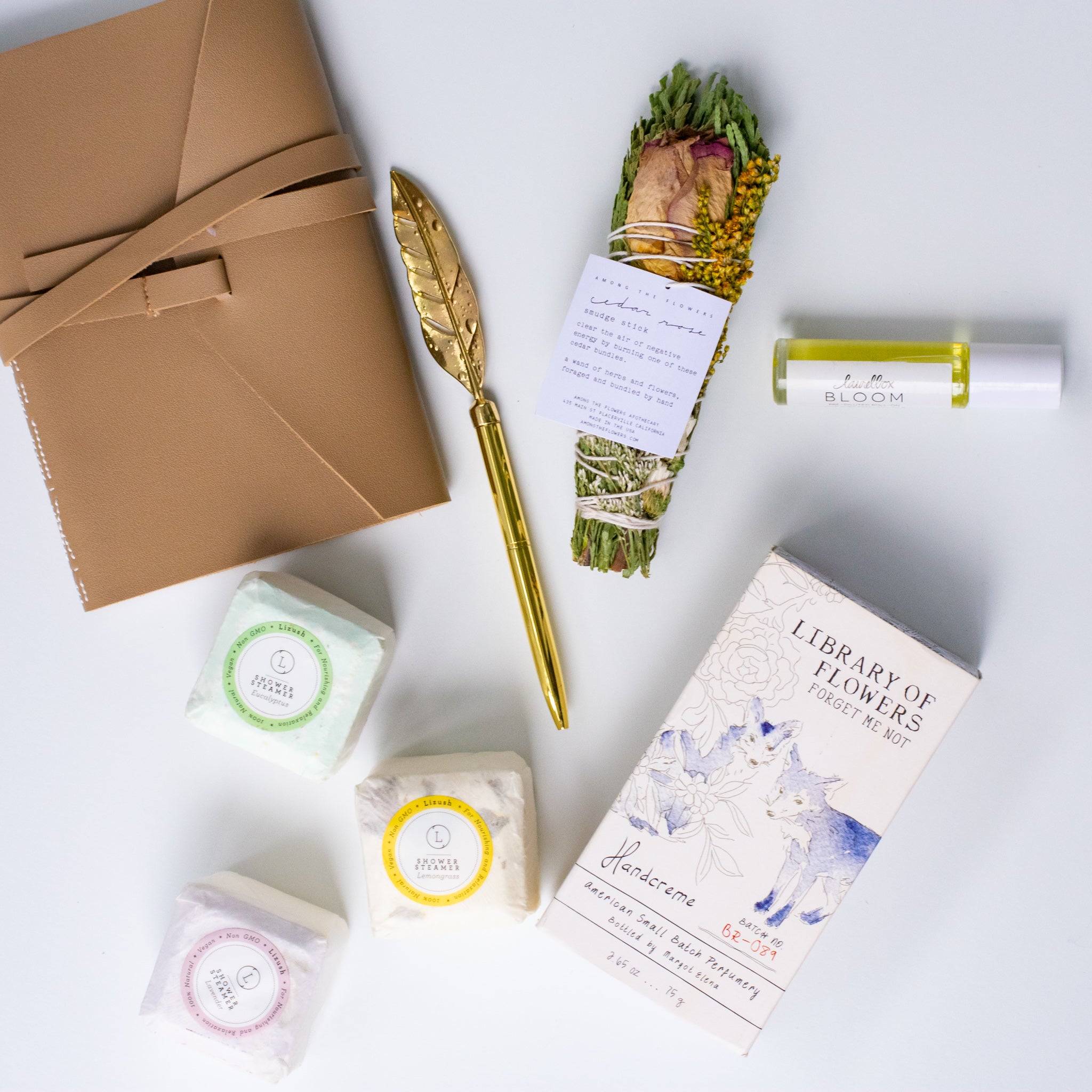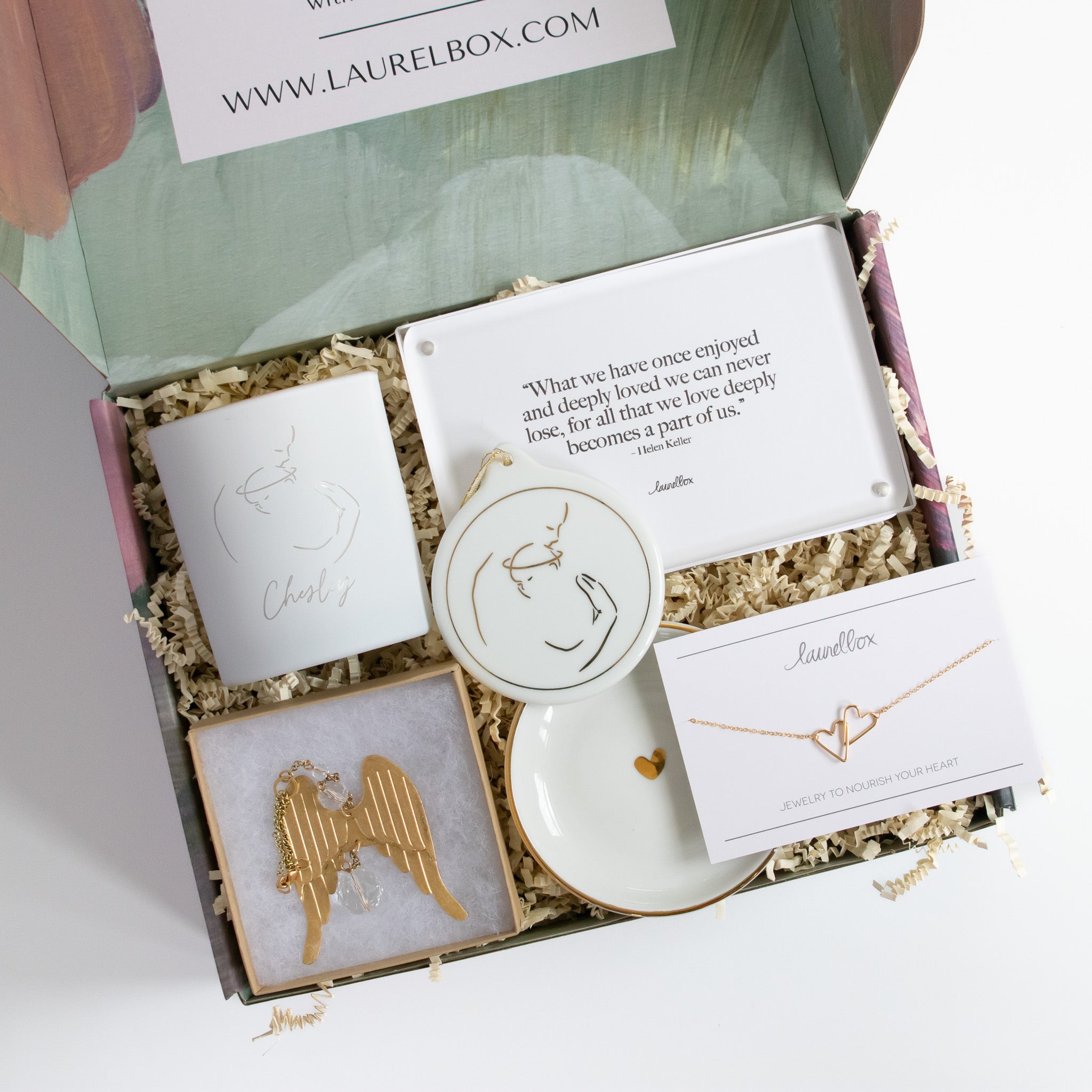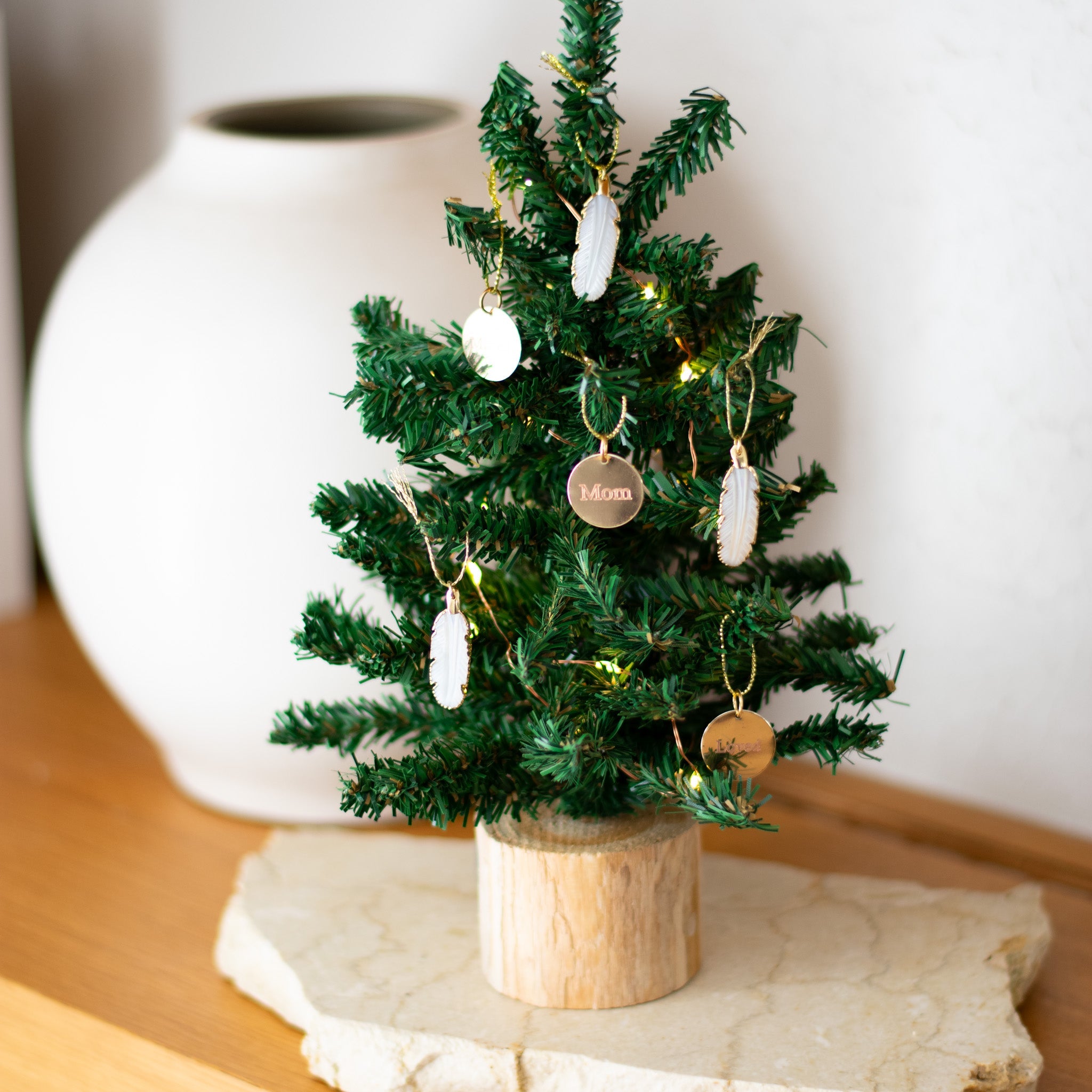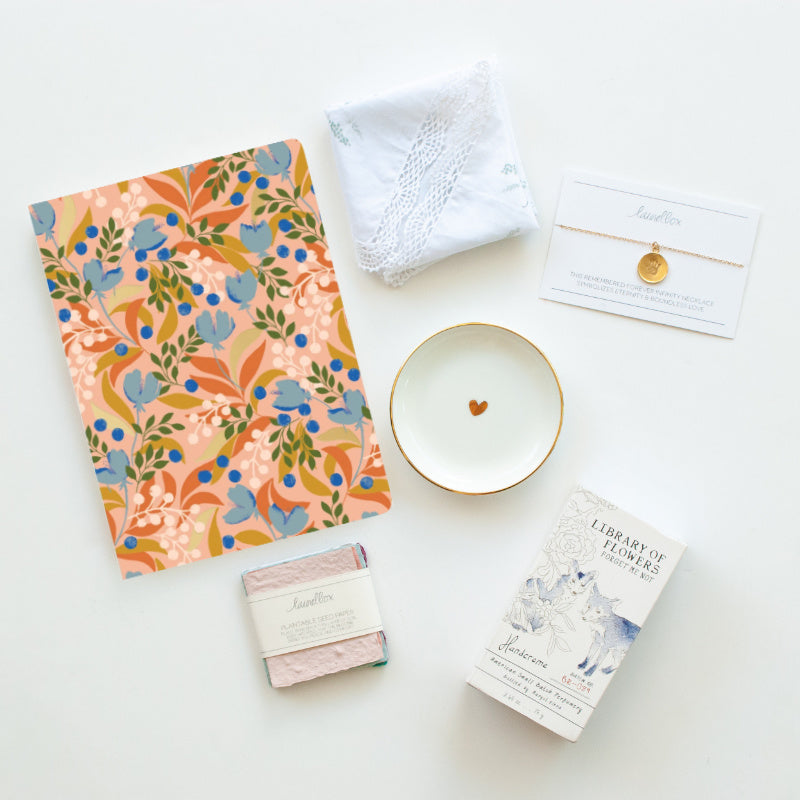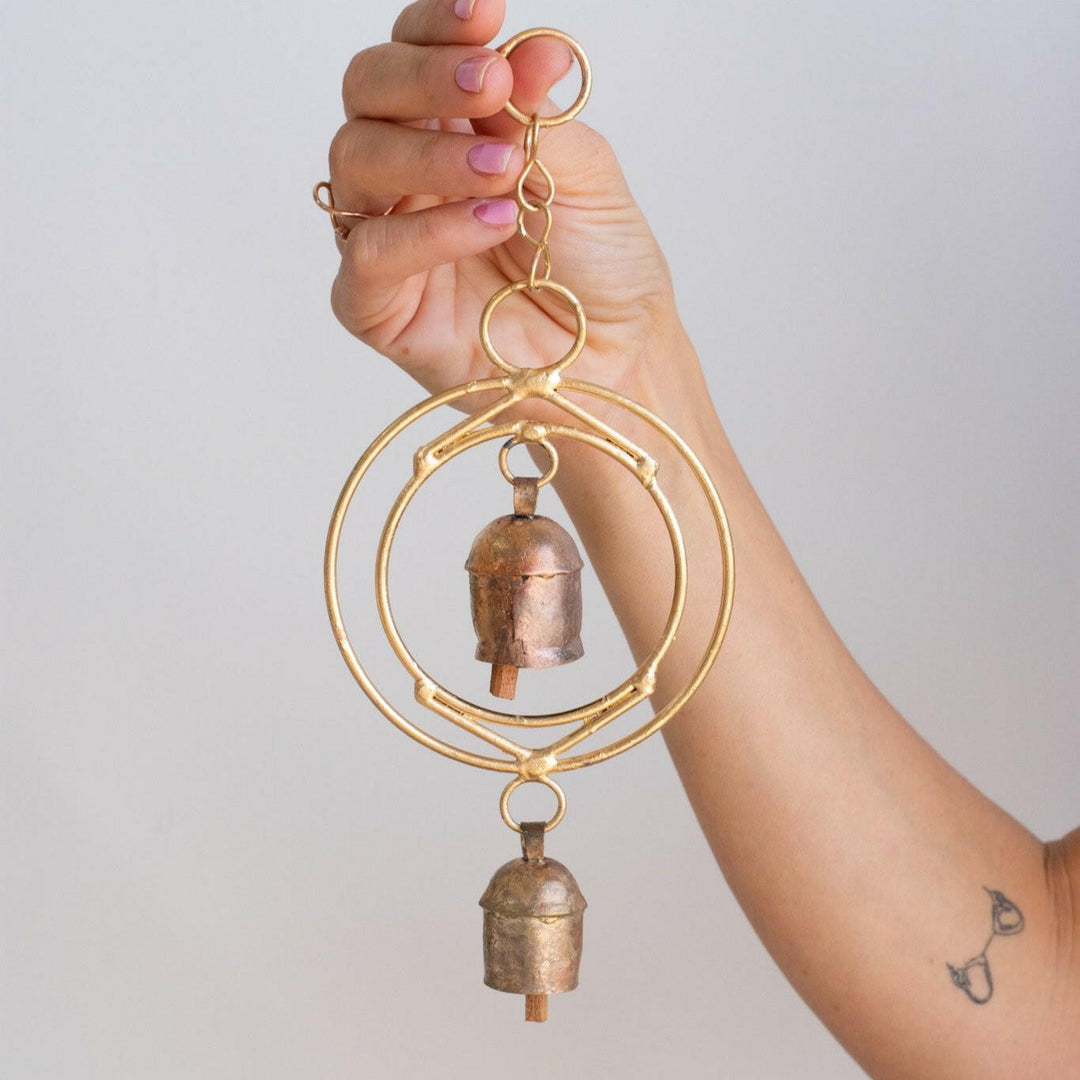Lindsay Joy Taylor
photos by Jamie Maxwell Jones
Lindsay is a mental health professional turned jewelry designer who is compassionate about grief and loss. She owns the Joyful Jewelry Box and lives in California with her husband Brandon and dog Trooper. Lindsay is known for her big laugh and some of her favorite things include coffee, yoga, and concerts.
My mother was murdered when I was 13 months old and sadly, I do not have any memories of her. Since she passed away so early in my life, I also never had the chance to celebrate Mother’s Day with her. As I write that out, the aftermath sounds more tragic and emotional than it felt at the time. Growing up, it was merely fact that my mom was not alive and while I yearned for her presence, I never knew life any differently. Nonetheless, Mother’s Day was still painful because it shined another spotlight on a heartbreaking circumstance that could never be changed.
Generally, it was like any other day in our house and perhaps that is what made it so strange. Everyone else spent the day as a family, why didn’t we? There were no cards to make, gifts to buy, or meals to plan. Everything Mother’s Day entailed didn’t apply to me, so it felt empty and emotionless. It was even more isolating than her birthday or the anniversary of her death because everyone around me was doing the very thing that I couldn’t: spending time with their mom.
There were some years that I spent tagging along with families of close friends in attempts to feel normal or distract myself, but I felt all the more disconnected and lonely. How was I supposed to act? Was I allowed to address that I was the elephant in the room by being there instead of with my own family? I think Carl Jung said it best when he mused that “Loneliness doesn’t come from having no one around you but from being unable to communicate the things that are important to you.” Not only did I not want to make their family holiday about me, but I think I also doubted my right to grieve because how do you miss someone you did not know and cannot even remember? It felt like a cruel paradox that I would never understand and for a long time, I did not try.
I was often described as strong and resilient in response to what my family had been through. Many people acknowledged that I had experienced loss in my life, but their attention was more focused on the story than how I was actually doing. There was an assumption that because I was stoic and high-functioning, I must not mourn. While unintentional, I think it impacted my belief that my grief even existed, let alone that it mattered. How could I blame them when the well-known stages of grief were telling everyone what my pain was supposed to look like? Considering my sorrow looked differently than what was typically expected, it was mostly overlooked and Mother’s Day was no different.
I recently found a Mother’s Day craft from school that I had made for my aunt when I was little. It took my breath away to see a tangible symbol of my loss from such a young age. I was grateful that my teacher tried to be mindful and supportive of my situation, but also disheartened that I was not encouraged to honor my mother even though she was not here. Didn’t that mean she deserved the recognition all the more? In hindsight, these instances could have given me some space to process her absence, but it is a prime example of how common it is to minimize a child’s grief simply because no attention was given to it in the first place.
Because I lost my mom so young, Mother’s Day has become more emotional to process as I get older. For years, I thought that I had grown up with a healthy sense of acceptance, but now I recognize that instead, I had shut down as a way to cope with my overwhelming loss. What was once a fact of life has become a source of unpredictable and profound sadness as I grew to understand the impact of her death. As an adult, I feel her loss so much more now than I did as a child, so I have found it comforting to approach Mother’s Day with a meaningful plan. In the past, I have released balloons, cooked her favorite recipes, and participated in memorial runs. Even though these experiences will never be a suitable replacement for having her here, being intentional about my grief helps me feel connected to her spirit and provides opportunities for healing.
My mom suffered severe morning sickness throughout her pregnancy with me and when I was born, my family was also going through a tough season. It was important to her that my middle name be Joy to represent the happiness they felt despite it being such a difficult time in their lives. It is like she knew I would need the constant reminder to seek joy no matter what. So I try to remember that though she is not alive, she still managed to teach me one of life’s greatest lessons: that my deepest pain can also be a source of great meaning in my life.


